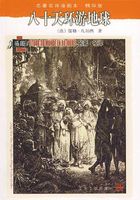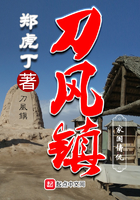The earliest histories were not written, but oral songs and sagas① such as the battle and adventure tales told by the poet Homer in the Iliad and the Odyssey.
The wandering bards who passed these stories from generation to generation made no attempt to sort out fact from fiction②. For them, the grand legends of gods and supernatural③ heroes were as real and important as actual events. Today we know that many of these ancient sagas, although exaggerated④, do have a real basis in fact.
The story of the Trojan War, told in the Iliad, was long thought to be pure fiction:however, today we can visit the ruins of Troy and walk through the gateway, guarded by a ruined tower, through which the Trojan soldiers marched out to meet the forces of the invading Greeks. What is more, the man who discovered the ruins of this city made use of no documents or research materials other than Homer’s description of its location.
The “one-eyed giant⑤” who hurled⑥ rocks down upon Odysseus ships in the Odyssey has been identified as the volcano of Mount Etna, which has frequently poured out rocky death, and whose cone can glow like a single eye against the dark of night. Nearby, in the sea off the coast of Sicily, lie some huge and jagged⑦ rocks which look as if a giant might have hurledthem there, just as Odysseus homecoming⑧ sailors reported.
① sagan. 传说;英雄事迹
② fictionn. (总称)小说[U]
③ supernaturaladj. 超自然的,神奇的,不可思议的
④ exaggeratev. 夸张,夸大;对……言过其实
⑤ giantn. 巨人
⑥ hurlv. 猛力投掷[(+at/upon)]
⑦ jagv. 使成缺口
⑧ homecomingadj. 回家(乡)的;回国的
古代英雄传奇
最早的历史不是以文字记载,而是言传的,如诗人荷马在《伊利亚特》和《奥德赛》中讲述的战争与冒险的诗歌和传奇故事等等。
使这些故事代代相传的吟游诗人,从未打算去分清虚构和真实。对他们来说,神和超自然英雄人物宏伟壮烈的传奇故事,就像实际发生的历史事件一样真实和重要。今天我们知道,这些古老的传奇故事中有许多实际上是确有其事的,虽然其中也不免含有夸张的成分。
《伊利亚特》中叙说的特洛伊战争故事,长期以来一直被认为纯属虚构。然而,我们今天却参观了特洛伊城的废墟,穿过一座已毁坏的城楼守护着的城门,特洛伊的士兵正是走过这座城门,去迎战入侵的希腊军队的。更重要的是,发现这座城市废墟的人,除了根据荷马对其位置的描述以外,没有凭借任何文件和研究资料。
在《奥德赛》中,向奥德修斯的船只猛投石块的神奇“独眼巨人”,已被认定是埃特纳火山。这座火山一直在不断地喷出岩石而造成死亡,它的火山锥在黑夜的背景下简直像一只眼睛一样闪闪发光。在不远处的西西里海岸的近海地区,横陈着一些参差不齐的巨石。看起来像被一位巨人老早抛在那儿似的,正如奥德修斯手下那些踏上归途的水手们所报告的那样。















